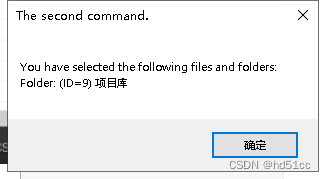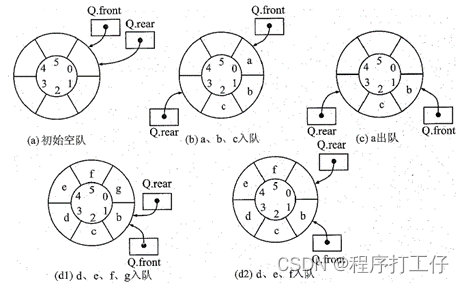Perfview:https://github.com/Microsoft/perfview/releases
PerfCollect:https://github.com/dotnet/coreclr/blob/master/Documentation/project-docs/linux-performance-tracing.md
Linux 环境中运行的 ASP.NET Core应用中收集跟踪
PerfCollect(https://github.com/dotnet/coreclr/blob/master/Documentation/project-docs/linux-performance-tracing.md) 是一个 bash 脚本,它使用本机 Linux 分析工具(Perf 和 LTTng)收集 Linux 上的跟踪信息,以便 PerfView 进行分析
#Download Perfcollect.
curl -OL http://aka.ms/perfcollect (网络原因,因此下载存为文件名:/root/perfcollect)
#Make the script executable.
chmod +x ./perfcollect
#Install tracing prerequisites - these are the actual tracing libraries. For details on prerequisites, see below.
sudo ./perfcollect install
##Collecting a Trace
#[App] Setup the application shell - this enables tracing configuration inside of CoreCLR.
export COMPlus_PerfMapEnabled=1
export COMPlus_EnableEventLog=1
#[Trace] Start collection.
sudo ./perfcollect collect trace_202306082203运行效果:
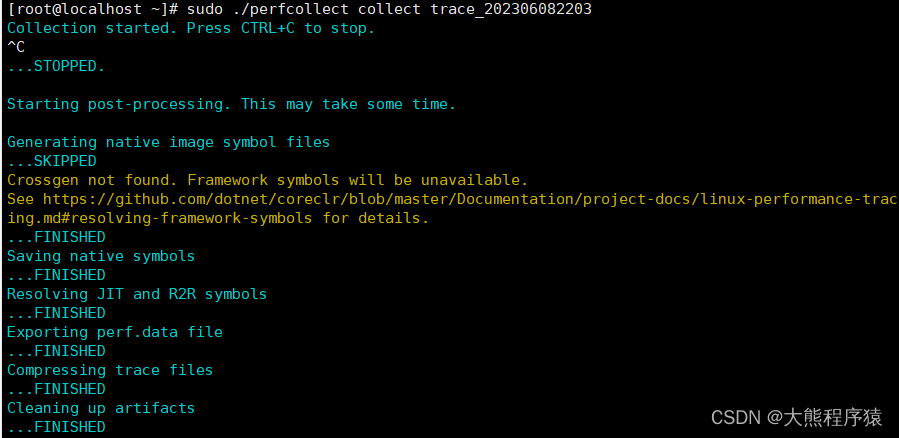
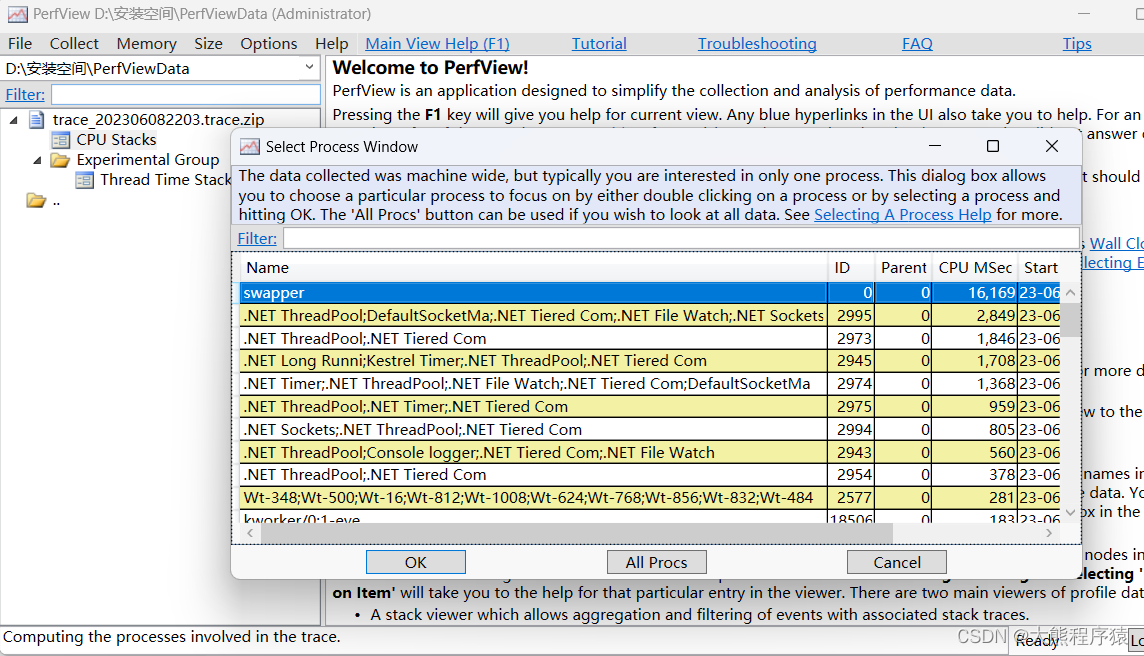
perfcollect文件内容如下:
#!/bin/bash
#############################################################################################################
# .NET Performance Data Collection Script
#############################################################################################################
#############################################################################################################
#
# ***** HOW TO USE THIS SCRIPT *****
#
# This script can be used to collect and view performance data collected with perf_event on Linux.
# It's job is to make it simple to collect performance traces.
#
# How to collect a performance trace:
# 1. Prior to starting the .NET process, set the environment variable COMPlus_PerfMapEnabled=1.
# This tells the runtime to emit information that enables perf_event to resolve JIT-compiled code symbols.
#
# 2. Setup your system to reproduce the performance issue you'd like to capture. Data collection can be
# started on already running processes.
#
# 3. [Usage #1] use "collect" command
# - Run this script: sudo ./perfcollect collect samplePerfTrace. This will start data collection.
# - Let the repro run as long as you need to capture the performance problem.
# - Hit CTRL+C to stop collection.
#
# [Usage #2] use "start" and "stop" command
# - Run this script: sudo ./perfcollect start samplePerfTrace. This will start data colletion.
# - Let the repro run as long as you need to capture the performance problem.
# - Run: sudo ./perfcollect stop samplePerfTrace. This will stop collection.
#
# 4. When collection is stopped, the script will create a trace.zip file matching the name specified on the
# command line. This file will contain the trace, JIT-compiled symbol information, and all debugging
# symbols for binaries referenced by this trace that were available on the machine at collection time.
#
# How to view a performance trace:
# 1. Run this script: ./perfcollect view samplePerfTrace.trace.zip
# This will extract the trace, place and register all symbol files and JIT-compiled symbol information
# and start the perf_event viewer. By default, you will be looking at a callee view - stacks are ordered
# top down. For a caller or bottom up view, specify '-graphtype caller'.
#############################################################################################################
######################################
## FOR DEBUGGING ONLY
######################################
# set -x
######################################
## Collection Options
## NOTE: These values represent the collection defaults.
######################################
# Set when we parse command line arguments to determine if we should enable specific collection options.
collect_cpu=1
collect_threadTime=0
collect_offcpu=0
collect_system=0
######################################
## .NET Event Categories
######################################
# Separate GCCollectOnly list because our LTTng implementation doesn't set tracepoint verbosity.
# Once tracepoint verbosity is set, we can set verbosity and collapse this with DotNETRuntime_GCKeyword.
declare -a DotNETRuntime_GCKeyword_GCCollectOnly=(
DotNETRuntime:GCStart
DotNETRuntime:GCStart_V1
DotNETRuntime:GCStart_V2
DotNETRuntime:GCEnd
DotNETRuntime:GCEnd_V1
DotNETRuntime:GCRestartEEEnd
DotNETRuntime:GCRestartEEEnd_V1
DotNETRuntime:GCHeapStats
DotNETRuntime:GCHeapStats_V1
DotNETRuntime:GCCreateSegment
DotNETRuntime:GCCreateSegment_V1
DotNETRuntime:GCFreeSegment
DotNETRuntime:GCFreeSegment_V1
DotNETRuntime:GCRestartEEBegin
DotNETRuntime:GCRestartEEBegin_V1
DotNETRuntime:GCSuspendEEEnd
DotNETRuntime:GCSuspendEEEnd_V1
DotNETRuntime:GCSuspendEEBegin
DotNETRuntime:GCSuspendEEBegin_V1
DotNETRuntime:GCCreateConcurrentThread
DotNETRuntime:GCTerminateConcurrentThread
DotNETRuntime:GCFinalizersEnd
DotNETRuntime:GCFinalizersEnd_V1
DotNETRuntime:GCFinalizersBegin
DotNETRuntime:GCFinalizersBegin_V1
DotNETRuntime:GCMarkStackRoots
DotNETRuntime:GCMarkFinalizeQueueRoots
DotNETRuntime:GCMarkHandles
DotNETRuntime:GCMarkOlderGenerationRoots
DotNETRuntime:FinalizeObject
DotNETRuntime:GCTriggered
DotNETRuntime:IncreaseMemoryPressure
DotNETRuntime:DecreaseMemoryPressure
DotNETRuntime:GCMarkWithType
DotNETRuntime:GCPerHeapHistory_V3
DotNETRuntime:GCGlobalHeapHistory_V2
DotNETRuntime:GCCreateConcurrentThread_V1
DotNETRuntime:GCTerminateConcurrentThread_V1
)
declare -a DotNETRuntime_GCKeyword=(
DotNETRuntime:GCStart
DotNETRuntime:GCStart_V1
DotNETRuntime:GCStart_V2
DotNETRuntime:GCEnd
DotNETRuntime:GCEnd_V1
DotNETRuntime:GCRestartEEEnd
DotNETRuntime:GCRestartEEEnd_V1
DotNETRuntime:GCHeapStats
DotNETRuntime:GCHeapStats_V1
DotNETRuntime:GCCreateSegment
DotNETRuntime:GCCreateSegment_V1
DotNETRuntime:GCFreeSegment
DotNETRuntime:GCFreeSegment_V1
DotNETRuntime:GCRestartEEBegin
DotNETRuntime:GCRestartEEBegin_V1
DotNETRuntime:GCSuspendEEEnd
DotNETRuntime:GCSuspendEEEnd_V1
DotNETRuntime:GCSuspendEEBegin
DotNETRuntime:GCSuspendEEBegin_V1
DotNETRuntime:GCAllocationTick
DotNETRuntime:GCAllocationTick_V1
DotNETRuntime:GCAllocationTick_V2
DotNETRuntime:GCAllocationTick_V3
DotNETRuntime:GCCreateConcurrentThread
DotNETRuntime:GCTerminateConcurrentThread
DotNETRuntime:GCFinalizersEnd
DotNETRuntime:GCFinalizersEnd_V1
DotNETRuntime:GCFinalizersBegin
DotNETRuntime:GCFinalizersBegin_V1
DotNETRuntime:GCMarkStackRoots
DotNETRuntime:GCMarkFinalizeQueueRoots
DotNETRuntime:GCMarkHandles
DotNETRuntime:GCMarkOlderGenerationRoots
DotNETRuntime:FinalizeObject
DotNETRuntime:PinObjectAtGCTime
DotNETRuntime:GCTriggered
DotNETRuntime:IncreaseMemoryPressure
DotNETRuntime:DecreaseMemoryPressure
DotNETRuntime:GCMarkWithType
DotNETRuntime:GCJoin_V2
DotNETRuntime:GCPerHeapHistory_V3
DotNETRuntime:GCGlobalHeapHistory_V2
DotNETRuntime:GCCreateConcurrentThread_V1
DotNETRuntime:GCTerminateConcurrentThread_V1
)
declare -a DotNETRuntime_TypeKeyword=(
DotNETRuntime:BulkType
)
declare -a DotNETRuntime_GCHeapDumpKeyword=(
DotNETRuntime:GCBulkRootEdge
DotNETRuntime:GCBulkRootConditionalWeakTableElementEdge
DotNETRuntime:GCBulkNode
DotNETRuntime:GCBulkEdge
DotNETRuntime:GCBulkRootCCW
DotNETRuntime:GCBulkRCW
DotNETRuntime:GCBulkRootStaticVar
)
declare -a DotNETRuntime_GCSampledObjectAllocationHighKeyword=(
DotNETRuntime:GCSampledObjectAllocationHigh
)
declare -a DotNETRuntime_GCHeapSurvivalAndMovementKeyword=(
DotNETRuntime:GCBulkSurvivingObjectRanges
DotNETRuntime:GCBulkMovedObjectRanges
DotNETRuntime:GCGenerationRange
)
declare -a DotNETRuntime_GCHandleKeyword=(
DotNETRuntime:SetGCHandle
DotNETRuntime:DestroyGCHandle
)
declare -a DotNETRuntime_GCSampledObjectAllocationLowKeyword=(
DotNETRuntime:GCSampledObjectAllocationLow
)
declare -a DotNETRuntime_ThreadingKeyword=(
DotNETRuntime:WorkerThreadCreate
DotNETRuntime:WorkerThreadTerminate
DotNETRuntime:WorkerThreadRetire
DotNETRuntime:WorkerThreadUnretire
DotNETRuntime:IOThreadCreate
DotNETRuntime:IOThreadCreate_V1
DotNETRuntime:IOThreadTerminate
DotNETRuntime:IOThreadTerminate_V1
DotNETRuntime:IOThreadRetire
DotNETRuntime:IOThreadRetire_V1
DotNETRuntime:IOThreadUnretire
DotNETRuntime:IOThreadUnretire_V1
DotNETRuntime:ThreadpoolSuspensionSuspendThread
DotNETRuntime:ThreadpoolSuspensionResumeThread
DotNETRuntime:ThreadPoolWorkerThreadStart
DotNETRuntime:ThreadPoolWorkerThreadStop
DotNETRuntime:ThreadPoolWorkerThreadRetirementStart
DotNETRuntime:ThreadPoolWorkerThreadRetirementStop
DotNETRuntime:ThreadPoolWorkerThreadAdjustmentSample
DotNETRuntime:ThreadPoolWorkerThreadAdjustmentAdjustment
DotNETRuntime:ThreadPoolWorkerThreadAdjustmentStats
DotNETRuntime:ThreadPoolWorkerThreadWait
DotNETRuntime:ThreadPoolWorkingThreadCount
DotNETRuntime:ThreadPoolIOPack
DotNETRuntime:GCCreateConcurrentThread_V1
DotNETRuntime:GCTerminateConcurrentThread_V1
)
declare -a DotNETRuntime_ThreadingKeyword_ThreadTransferKeyword=(
DotNETRuntime:ThreadPoolEnqueue
DotNETRuntime:ThreadPoolDequeue
DotNETRuntime:ThreadPoolIOEnqueue
DotNETRuntime:ThreadPoolIODequeue
DotNETRuntime:ThreadCreating
DotNETRuntime:ThreadRunning
)
declare -a DotNETRuntime_NoKeyword=(
DotNETRuntime:ExceptionThrown
DotNETRuntime:Contention
DotNETRuntime:RuntimeInformationStart
DotNETRuntime:EventSource
)
declare -a DotNETRuntime_ExceptionKeyword=(
DotNETRuntime:ExceptionThrown_V1
DotNETRuntime:ExceptionCatchStart
DotNETRuntime:ExceptionCatchStop
DotNETRuntime:ExceptionFinallyStart
DotNETRuntime:ExceptionFinallyStop
DotNETRuntime:ExceptionFilterStart
DotNETRuntime:ExceptionFilterStop
DotNETRuntime:ExceptionThrownStop
)
declare -a DotNETRuntime_ContentionKeyword=(
DotNETRuntime:ContentionStart_V1
DotNETRuntime:ContentionStop
DotNETRuntime:ContentionStop_V1
)
declare -a DotNETRuntime_StackKeyword=(
DotNETRuntime:CLRStackWalk
)
declare -a DotNETRuntime_AppDomainResourceManagementKeyword=(
DotNETRuntime:AppDomainMemAllocated
DotNETRuntime:AppDomainMemSurvived
)
declare -a DotNETRuntime_AppDomainResourceManagementKeyword_ThreadingKeyword=(
DotNETRuntime:ThreadCreated
DotNETRuntime:ThreadTerminated
DotNETRuntime:ThreadDomainEnter
)
declare -a DotNETRuntime_InteropKeyword=(
DotNETRuntime:ILStubGenerated
DotNETRuntime:ILStubCacheHit
)
declare -a DotNETRuntime_JitKeyword_NGenKeyword=(
DotNETRuntime:DCStartCompleteV2
DotNETRuntime:DCEndCompleteV2
DotNETRuntime:MethodDCStartV2
DotNETRuntime:MethodDCEndV2
DotNETRuntime:MethodDCStartVerboseV2
DotNETRuntime:MethodDCEndVerboseV2
DotNETRuntime:MethodLoad
DotNETRuntime:MethodLoad_V1
DotNETRuntime:MethodLoad_V2
DotNETRuntime:MethodUnload
DotNETRuntime:MethodUnload_V1
DotNETRuntime:MethodUnload_V2
DotNETRuntime:MethodLoadVerbose
DotNETRuntime:MethodLoadVerbose_V1
DotNETRuntime:MethodLoadVerbose_V2
DotNETRuntime:MethodUnloadVerbose
DotNETRuntime:MethodUnloadVerbose_V1
DotNETRuntime:MethodUnloadVerbose_V2
)
declare -a DotNETRuntime_JitKeyword=(
DotNETRuntime:MethodJittingStarted
DotNETRuntime:MethodJittingStarted_V1
)
declare -a DotNETRuntime_JitTracingKeyword=(
DotNETRuntime:MethodJitInliningSucceeded
DotNETRuntime:MethodJitInliningFailed
DotNETRuntime:MethodJitTailCallSucceeded
DotNETRuntime:MethodJitTailCallFailed
)
declare -a DotNETRuntime_JittedMethodILToNativeMapKeyword=(
DotNETRuntime:MethodILToNativeMap
)
declare -a DotNETRuntime_LoaderKeyword=(
DotNETRuntime:ModuleDCStartV2
DotNETRuntime:ModuleDCEndV2
DotNETRuntime:DomainModuleLoad
DotNETRuntime:DomainModuleLoad_V1
DotNETRuntime:ModuleLoad
DotNETRuntime:ModuleUnload
DotNETRuntime:AssemblyLoad
DotNETRuntime:AssemblyLoad_V1
DotNETRuntime:AssemblyUnload
DotNETRuntime:AssemblyUnload_V1
DotNETRuntime:AppDomainLoad
DotNETRuntime:AppDomainLoad_V1
DotNETRuntime:AppDomainUnload
DotNETRuntime:AppDomainUnload_V1
)
declare -a DotNETRuntime_LoaderKeyword=(
DotNETRuntime:ModuleLoad_V1
DotNETRuntime:ModuleLoad_V2
DotNETRuntime:ModuleUnload_V1
DotNETRuntime:ModuleUnload_V2
)
declare -a DotNETRuntime_SecurityKeyword=(
DotNETRuntime:StrongNameVerificationStart
DotNETRuntime:StrongNameVerificationStart_V1
DotNETRuntime:StrongNameVerificationStop
DotNETRuntime:StrongNameVerificationStop_V1
DotNETRuntime:AuthenticodeVerificationStart
DotNETRuntime:AuthenticodeVerificationStart_V1
DotNETRuntime:AuthenticodeVerificationStop
DotNETRuntime:AuthenticodeVerificationStop_V1
)
declare -a DotNETRuntime_DebuggerKeyword=(
DotNETRuntime:DebugIPCEventStart
DotNETRuntime:DebugIPCEventEnd
DotNETRuntime:DebugExceptionProcessingStart
DotNETRuntime:DebugExceptionProcessingEnd
)
declare -a DotNETRuntime_CodeSymbolsKeyword=(
DotNETRuntime:CodeSymbols
)
declare -a DotNETRuntime_CompilationKeyword=(
DotNETRuntime:TieredCompilationSettings
DotNETRuntime:TieredCompilationPause
DotNETRuntime:TieredCompilationResume
DotNETRuntime:TieredCompilationBackgroundJitStart
DotNETRuntime:TieredCompilationBackgroundJitStop
DotNETRuntimeRundown:TieredCompilationSettingsDCStart
)
# Separate GCCollectOnly list because our LTTng implementation doesn't set tracepoint verbosity.
# Once tracepoint verbosity is set, we can set verbosity and collapse this with DotNETRuntimePrivate_GCPrivateKeyword.
declare -a DotNETRuntimePrivate_GCPrivateKeyword_GCCollectOnly=(
DotNETRuntimePrivate:GCDecision
DotNETRuntimePrivate:GCDecision_V1
DotNETRuntimePrivate:GCSettings
DotNETRuntimePrivate:GCSettings_V1
DotNETRuntimePrivate:GCPerHeapHistory
DotNETRuntimePrivate:GCPerHeapHistory_V1
DotNETRuntimePrivate:GCGlobalHeapHistory
DotNETRuntimePrivate:GCGlobalHeapHistory_V1
DotNETRuntimePrivate:PrvGCMarkStackRoots
DotNETRuntimePrivate:PrvGCMarkStackRoots_V1
DotNETRuntimePrivate:PrvGCMarkFinalizeQueueRoots
DotNETRuntimePrivate:PrvGCMarkFinalizeQueueRoots_V1
DotNETRuntimePrivate:PrvGCMarkHandles
DotNETRuntimePrivate:PrvGCMarkHandles_V1
DotNETRuntimePrivate:PrvGCMarkCards
DotNETRuntimePrivate:PrvGCMarkCards_V1
DotNETRuntimePrivate:BGCBegin
DotNETRuntimePrivate:BGC1stNonConEnd
DotNETRuntimePrivate:BGC1stConEnd
DotNETRuntimePrivate:BGC2ndNonConBegin
DotNETRuntimePrivate:BGC2ndNonConEnd
DotNETRuntimePrivate:BGC2ndConBegin
DotNETRuntimePrivate:BGC2ndConEnd
DotNETRuntimePrivate:BGCPlanEnd
DotNETRuntimePrivate:BGCSweepEnd
DotNETRuntimePrivate:BGCDrainMark
DotNETRuntimePrivate:BGCRevisit
DotNETRuntimePrivate:BGCOverflow
DotNETRuntimePrivate:BGCAllocWaitBegin
DotNETRuntimePrivate:BGCAllocWaitEnd
DotNETRuntimePrivate:GCFullNotify
DotNETRuntimePrivate:GCFullNotify_V1
DotNETRuntimePrivate:PrvFinalizeObject
DotNETRuntimePrivate:PinPlugAtGCTime
)
declare -a DotNETRuntimePrivate_GCPrivateKeyword=(
DotNETRuntimePrivate:GCDecision
DotNETRuntimePrivate:GCDecision_V1
DotNETRuntimePrivate:GCSettings
DotNETRuntimePrivate:GCSettings_V1
DotNETRuntimePrivate:GCOptimized
DotNETRuntimePrivate:GCOptimized_V1
DotNETRuntimePrivate:GCPerHeapHistory
DotNETRuntimePrivate:GCPerHeapHistory_V1
DotNETRuntimePrivate:GCGlobalHeapHistory
DotNETRuntimePrivate:GCGlobalHeapHistory_V1
DotNETRuntimePrivate:GCJoin
DotNETRuntimePrivate:GCJoin_V1
DotNETRuntimePrivate:PrvGCMarkStackRoots
DotNETRuntimePrivate:PrvGCMarkStackRoots_V1
DotNETRuntimePrivate:PrvGCMarkFinalizeQueueRoots
DotNETRuntimePrivate:PrvGCMarkFinalizeQueueRoots_V1
DotNETRuntimePrivate:PrvGCMarkHandles
DotNETRuntimePrivate:PrvGCMarkHandles_V1
DotNETRuntimePrivate:PrvGCMarkCards
DotNETRuntimePrivate:PrvGCMarkCards_V1
DotNETRuntimePrivate:BGCBegin
DotNETRuntimePrivate:BGC1stNonConEnd
DotNETRuntimePrivate:BGC1stConEnd
DotNETRuntimePrivate:BGC2ndNonConBegin
DotNETRuntimePrivate:BGC2ndNonConEnd
DotNETRuntimePrivate:BGC2ndConBegin
DotNETRuntimePrivate:BGC2ndConEnd
DotNETRuntimePrivate:BGCPlanEnd
DotNETRuntimePrivate:BGCSweepEnd
DotNETRuntimePrivate:BGCDrainMark
DotNETRuntimePrivate:BGCRevisit
DotNETRuntimePrivate:BGCOverflow
DotNETRuntimePrivate:BGCAllocWaitBegin
DotNETRuntimePrivate:BGCAllocWaitEnd
DotNETRuntimePrivate:GCFullNotify
DotNETRuntimePrivate:GCFullNotify_V1
DotNETRuntimePrivate:PrvFinalizeObject
DotNETRuntimePrivate:PinPlugAtGCTime
)
declare -a DotNETRuntimePrivate_StartupKeyword=(
DotNETRuntimePrivate:EEStartupStart
DotNETRuntimePrivate:EEStartupStart_V1
DotNETRuntimePrivate:EEStartupEnd
DotNETRuntimePrivate:EEStartupEnd_V1
DotNETRuntimePrivate:EEConfigSetup
DotNETRuntimePrivate:EEConfigSetup_V1
DotNETRuntimePrivate:EEConfigSetupEnd
DotNETRuntimePrivate:EEConfigSetupEnd_V1
DotNETRuntimePrivate:LdSysBases
DotNETRuntimePrivate:LdSysBases_V1
DotNETRuntimePrivate:LdSysBasesEnd
DotNETRuntimePrivate:LdSysBasesEnd_V1
DotNETRuntimePrivate:ExecExe
DotNETRuntimePrivate:ExecExe_V1
DotNETRuntimePrivate:ExecExeEnd
DotNETRuntimePrivate:ExecExeEnd_V1
DotNETRuntimePrivate:Main
DotNETRuntimePrivate:Main_V1
DotNETRuntimePrivate:MainEnd
DotNETRuntimePrivate:MainEnd_V1
DotNETRuntimePrivate:ApplyPolicyStart
DotNETRuntimePrivate:ApplyPolicyStart_V1
DotNETRuntimePrivate:ApplyPolicyEnd
DotNETRuntimePrivate:ApplyPolicyEnd_V1
DotNETRuntimePrivate:LdLibShFolder
DotNETRuntimePrivate:LdLibShFolder_V1
DotNETRuntimePrivate:LdLibShFolderEnd
DotNETRuntimePrivate:LdLibShFolderEnd_V1
DotNETRuntimePrivate:PrestubWorker
DotNETRuntimePrivate:PrestubWorker_V1
DotNETRuntimePrivate:PrestubWorkerEnd
DotNETRuntimePrivate:PrestubWorkerEnd_V1
DotNETRuntimePrivate:GetInstallationStart
DotNETRuntimePrivate:GetInstallationStart_V1
DotNETRuntimePrivate:GetInstallationEnd
DotNETRuntimePrivate:GetInstallationEnd_V1
DotNETRuntimePrivate:OpenHModule
DotNETRuntimePrivate:OpenHModule_V1
DotNETRuntimePrivate:OpenHModuleEnd
DotNETRuntimePrivate:OpenHModuleEnd_V1
DotNETRuntimePrivate:ExplicitBindStart
DotNETRuntimePrivate:ExplicitBindStart_V1
DotNETRuntimePrivate:ExplicitBindEnd
DotNETRuntimePrivate:ExplicitBindEnd_V1
DotNETRuntimePrivate:ParseXml
DotNETRuntimePrivate:ParseXml_V1
DotNETRuntimePrivate:ParseXmlEnd
DotNETRuntimePrivate:ParseXmlEnd_V1
DotNETRuntimePrivate:InitDefaultDomain
DotNETRuntimePrivate:InitDefaultDomain_V1
DotNETRuntimePrivate:InitDefaultDomainEnd
DotNETRuntimePrivate:InitDefaultDomainEnd_V1
DotNETRuntimePrivate:InitSecurity
DotNETRuntimePrivate:InitSecurity_V1
DotNETRuntimePrivate:InitSecurityEnd
DotNETRuntimePrivate:InitSecurityEnd_V1
DotNETRuntimePrivate:AllowBindingRedirs
DotNETRuntimePrivate:AllowBindingRedirs_V1
DotNETRuntimePrivate:AllowBindingRedirsEnd
DotNETRuntimePrivate:AllowBindingRedirsEnd_V1
DotNETRuntimePrivate:EEConfigSync
DotNETRuntimePrivate:EEConfigSync_V1
DotNETRuntimePrivate:EEConfigSyncEnd
DotNETRuntimePrivate:EEConfigSyncEnd_V1
DotNETRuntimePrivate:FusionBinding
DotNETRuntimePrivate:FusionBinding_V1
DotNETRuntimePrivate:FusionBindingEnd
DotNETRuntimePrivate:FusionBindingEnd_V1
DotNETRuntimePrivate:LoaderCatchCall
DotNETRuntimePrivate:LoaderCatchCall_V1
DotNETRuntimePrivate:LoaderCatchCallEnd
DotNETRuntimePrivate:LoaderCatchCallEnd_V1
DotNETRuntimePrivate:FusionInit
DotNETRuntimePrivate:FusionInit_V1
DotNETRuntimePrivate:FusionInitEnd
DotNETRuntimePrivate:FusionInitEnd_V1
DotNETRuntimePrivate:FusionAppCtx
DotNETRuntimePrivate:FusionAppCtx_V1
DotNETRuntimePrivate:FusionAppCtxEnd
DotNETRuntimePrivate:FusionAppCtxEnd_V1
DotNETRuntimePrivate:Fusion2EE
DotNETRuntimePrivate:Fusion2EE_V1
DotNETRuntimePrivate:Fusion2EEEnd
DotNETRuntimePrivate:Fusion2EEEnd_V1
DotNETRuntimePrivate:SecurityCatchCall
DotNETRuntimePrivate:SecurityCatchCall_V1
DotNETRuntimePrivate:SecurityCatchCallEnd
DotNETRuntimePrivate:SecurityCatchCallEnd_V1
)
declare -a DotNETRuntimePrivate_StackKeyword=(
DotNETRuntimePrivate:CLRStackWalkPrivate
)
declare -a DotNETRuntimePrivate_PerfTrackPrivateKeyword=(
DotNETRuntimePrivate:ModuleRangeLoadPrivate
)
declare -a DotNETRuntimePrivate_BindingKeyword=(
DotNETRuntimePrivate:BindingPolicyPhaseStart
DotNETRuntimePrivate:BindingPolicyPhaseEnd
DotNETRuntimePrivate:BindingNgenPhaseStart
DotNETRuntimePrivate:BindingNgenPhaseEnd
DotNETRuntimePrivate:BindingLookupAndProbingPhaseStart
DotNETRuntimePrivate:BindingLookupAndProbingPhaseEnd
DotNETRuntimePrivate:LoaderPhaseStart
DotNETRuntimePrivate:LoaderPhaseEnd
DotNETRuntimePrivate:BindingPhaseStart
DotNETRuntimePrivate:BindingPhaseEnd
DotNETRuntimePrivate:BindingDownloadPhaseStart
DotNETRuntimePrivate:BindingDownloadPhaseEnd
DotNETRuntimePrivate:LoaderAssemblyInitPhaseStart
DotNETRuntimePrivate:LoaderAssemblyInitPhaseEnd
DotNETRuntimePrivate:LoaderMappingPhaseStart
DotNETRuntimePrivate:LoaderMappingPhaseEnd
DotNETRuntimePrivate:LoaderDeliverEventsPhaseStart
DotNETRuntimePrivate:LoaderDeliverEventsPhaseEnd
DotNETRuntimePrivate:FusionMessageEvent
DotNETRuntimePrivate:FusionErrorCodeEvent
)
declare -a DotNETRuntimePrivate_SecurityPrivateKeyword=(
DotNETRuntimePrivate:EvidenceGenerated
DotNETRuntimePrivate:ModuleTransparencyComputationStart
DotNETRuntimePrivate:ModuleTransparencyComputationEnd
DotNETRuntimePrivate:TypeTransparencyComputationStart
DotNETRuntimePrivate:TypeTransparencyComputationEnd
DotNETRuntimePrivate:MethodTransparencyComputationStart
DotNETRuntimePrivate:MethodTransparencyComputationEnd
DotNETRuntimePrivate:FieldTransparencyComputationStart
DotNETRuntimePrivate:FieldTransparencyComputationEnd
DotNETRuntimePrivate:TokenTransparencyComputationStart
DotNETRuntimePrivate:TokenTransparencyComputationEnd
)
declare -a DotNETRuntimePrivate_PrivateFusionKeyword=(
DotNETRuntimePrivate:NgenBindEvent
)
declare -a DotNETRuntimePrivate_NoKeyword=(
DotNETRuntimePrivate:FailFast
)
declare -a DotNETRuntimePrivate_InteropPrivateKeyword=(
DotNETRuntimePrivate:CCWRefCountChange
)
declare -a DotNETRuntimePrivate_GCHandlePrivateKeyword=(
DotNETRuntimePrivate:PrvSetGCHandle
DotNETRuntimePrivate:PrvDestroyGCHandle
)
declare -a DotNETRuntimePrivate_LoaderHeapPrivateKeyword=(
DotNETRuntimePrivate:AllocRequest
)
declare -a DotNETRuntimePrivate_MulticoreJitPrivateKeyword=(
DotNETRuntimePrivate:MulticoreJit
DotNETRuntimePrivate:MulticoreJitMethodCodeReturned
)
declare -a DotNETRuntimePrivate_DynamicTypeUsageKeyword=(
DotNETRuntimePrivate:IInspectableRuntimeClassName
DotNETRuntimePrivate:WinRTUnbox
DotNETRuntimePrivate:CreateRCW
DotNETRuntimePrivate:RCWVariance
DotNETRuntimePrivate:RCWIEnumerableCasting
DotNETRuntimePrivate:CreateCCW
DotNETRuntimePrivate:CCWVariance
DotNETRuntimePrivate:ObjectVariantMarshallingToNative
DotNETRuntimePrivate:GetTypeFromGUID
DotNETRuntimePrivate:GetTypeFromProgID
DotNETRuntimePrivate:ConvertToCallbackEtw
DotNETRuntimePrivate:BeginCreateManagedReference
DotNETRuntimePrivate:EndCreateManagedReference
DotNETRuntimePrivate:ObjectVariantMarshallingToManaged
)
declare -a EventSource=(
DotNETRuntime:EventSource
)
declare -a LTTng_Kernel_ProcessLifetimeKeyword=(
sched_process_exec
sched_process_exit
)
######################################
## Global Variables
######################################
# Install without waiting for standard input
forceInstall=0
# Declare an array of events to collect.
declare -a eventsToCollect
# Use Perf_Event
usePerf=1
# Use LTTng
useLTTng=1
# LTTng Installed
lttngInstalled=0
# Collect hardware events
collect_HWevents=0
# Set to 1 when the CTRLC_Handler gets invoked.
handlerInvoked=0
# Log file
declare logFile
logFilePrefix='/tmp/perfcollect'
logEnabled=0
# Collect info to pass between processes
collectInfoFile=$(dirname `mktemp -u`)/'perfcollect.sessioninfo'
######################################
## Logging Functions
######################################
LogAppend()
{
if (( $logEnabled == 1 ))
then
echo $* >> $logFile
fi
}
RunSilent()
{
if (( $logEnabled == 1 ))
then
echo "Running \"$*\"" >> $logFile
$* >> $logFile 2>&1
echo "" >> $logFile
else
$* > /dev/null 2>&1
fi
}
RunSilentBackground()
{
if (( $logEnabled == 1 ))
then
echo "Running \"$*\"" >> $logFile
$* >> $logFile 2>&1 & sleep 1
echo "" >> $logFile
else
$* > /dev/null 2>&1 & sleep 1
fi
# When handler is invoked, kill the process.
pid=$!
for (( ; ; ))
do
if [ "$handlerInvoked" == "1" ]
then
kill -INT $pid
break;
else
sleep 1
fi
done
# Wait for the process to exit.
wait $pid
}
InitializeLog()
{
# Pick the log file name.
logFile="$logFilePrefix.log"
while [ -f $logFile ];
do
logFile="$logFilePrefix.$RANDOM.log"
done
# Mark the log as enabled.
logEnabled=1
# Start the log
date=`date`
echo "Log started at ${date}" > $logFile
echo '' >> $logFile
# The system information.
LogAppend 'Machine info: ' `uname -a`
if [ "$perfcmd" != "" ]
then
LogAppend 'perf version:' `$perfcmd --version 2>&1`
fi
if [ "$lttngcmd" != "" ]
then
LogAppend 'LTTng version: ' `$lttngcmd --version`
fi
LogAppend
}
CloseLog()
{
LogAppend "END LOG FILE"
LogAppend "NOTE: It is normal for the log file to end right before the trace is actually compressed. This occurs because the log file is part of the archive, and thus can't be written anymore."
# The log itself doesn't need to be closed,
# but we need to tell the script not to log anymore.
logEnabled=0
}
######################################
## Helper Functions
######################################
##
# Console text color modification helpers.
##
RedText()
{
tput=`GetCommandFullPath "tput"`
if [ "$tput" != "" ]
then
$tput setaf 1
fi
}
GreenText()
{
tput=`GetCommandFullPath "tput"`
if [ "$tput" != "" ]
then
$tput setaf 2
fi
}
BlueText()
{
tput=`GetCommandFullPath "tput"`
if [ "$tput" != "" ]
then
$tput setaf 6
fi
}
YellowText()
{
tput=`GetCommandFullPath "tput"`
if [ "$tput" != "" ]
then
$tput setaf 3
fi
}
ResetText()
{
tput=`GetCommandFullPath "tput"`
if [ "$tput" != "" ]
then
$tput sgr0
fi
}
# $1 == Status message
WriteStatus()
{
LogAppend $*
BlueText
echo $1
ResetText
}
# $1 == Message.
WriteWarning()
{
LogAppend $*
YellowText
echo $1
ResetText
}
# $1 == Message.
FatalError()
{
RedText
echo "ERROR: $1"
ResetText
PrintUsage
exit 1
}
EnsureRoot()
{
# Warn non-root users.
if [ `whoami` != "root" ]
then
RedText
echo "This script must be run as root."
ResetText
exit 1;
fi
}
######################################
# Command Discovery
######################################
DiscoverCommands()
{
perfcmd=`GetCommandFullPath "perf"`
if [ "$(IsDebian)" == "1" ]
then
# Test perf to see if it successfully runs or fails because it doesn't match the kernel version.
$perfcmd --version > /dev/null 2>&1
if [ "$?" == "1" ]
then
perfoutput=$($perfcmd 2>&1)
if [ $? -eq 1 ]
then
perfMarker="perf_"
if [[ "$perfoutput" == *"$perfMarker"* ]]
then
foundWorkingPerf=0
WriteWarning "Perf is installed, but does not exactly match the version of the running kernel."
WriteWarning "This is often OK, and we'll try to workaround this."
WriteStatus "Attempting to find a working copy of perf."
# Attempt to find an existing version of perf to use.
# Order the search by newest directory first.
baseDir="/usr/bin"
searchPath="$baseDir/perf_*"
for fileName in $(ls -d --sort=time $searchPath)
do
$($fileName > /dev/null 2>&1)
if [ $? -eq 1 ]
then
# If $? == 1, then use this copy of perf.
perfcmd=$fileName
foundWorkingPerf=1
break;
fi
done
if [ $foundWorkingPerf -eq 0 ]
then
FatalError "Unable to find a working copy of perf. Try re-installing via ./perfcollect install."
fi
WriteStatus "...FINISHED"
fi
fi
fi
fi
# Check to see if perf is installed, but doesn't exactly match the current kernel version.
# This happens when the kernel gets upgraded, or when running inside of a container where the
# host and container OS versions don't match.
perfoutput=$($perfcmd 2>&1)
if [ $? -eq 2 ]
then
# Check the beginning of the output to see if it matches the kernel warning.
warningText="WARNING: perf not found for kernel"
if [[ "$perfoutput" == "$warningText"* ]]
then
foundWorkingPerf=0
WriteWarning "Perf is installed, but does not exactly match the version of the running kernel."
WriteWarning "This is often OK, and we'll try to workaround this."
WriteStatus "Attempting to find a working copy of perf."
# Attempt to find an existing version of perf to use.
# Order the search by newest directory first.
baseDir="/usr/lib/linux-tools"
searchPath="$baseDir/*/"
for dirName in $(ls -d --sort=time $searchPath)
do
candidatePerfPath="$dirName""perf"
$($candidatePerfPath > /dev/null 2>&1)
if [ $? -eq 1 ]
then
# If $? == 1, then use this copy of perf.
perfcmd=$candidatePerfPath
foundWorkingPerf=1
break;
fi
done
if [ $foundWorkingPerf -eq 0 ]
then
FatalError "Unable to find a working copy of perf. Try re-installing via ./perfcollect install."
fi
WriteStatus "...FINISHED"
fi
fi
lttngcmd=`GetCommandFullPath "lttng"`
zipcmd=`GetCommandFullPath "zip"`
unzipcmd=`GetCommandFullPath "unzip"`
objdumpcmd=`GetCommandFullPath "objdump"`
}
GetCommandFullPath()
{
echo `command -v $1`
}
######################################
# Prerequisite Installation
######################################
IsMariner()
{
local mariner=0
if [ -f /etc/lsb-release ]
then
local flavor=`cat /etc/lsb-release | grep DISTRIB_ID`
if [ "$flavor" == "DISTRIB_ID=\"Mariner\"" ]
then
mariner=1
fi
fi
echo $mariner
}
InstallPerf_Mariner()
{
# Disallow non-root users.
EnsureRoot
# Install perf
tdnf install -y kernel-tools
# Install zip and unzip
tdnf install -y zip unzip
}
IsAlpine()
{
local alpine=0
local apk=`GetCommandFullPath "apk"`
if [ "$apk" != "" ]
then
alpine=1
fi
echo $alpine
}
InstallPerf_Alpine()
{
# Disallow non-root users.
EnsureRoot
# Install perf
apk add perf --repository=http://dl-cdn.alpinelinux.org/alpine/edge/community
# Install zip and unzip
apk add zip unzip
}
IsRHEL()
{
local rhel=0
if [ -f /etc/redhat-release ]
then
rhel=1
fi
echo $rhel
}
InstallPerf_RHEL()
{
# Disallow non-root users.
EnsureRoot
# Install perf
yum install perf zip unzip
}
IsDebian()
{
local debian=0
local uname=`uname -a`
if [[ $uname =~ .*Debian.* ]]
then
debian=1
elif [ -f /etc/debian_version ]
then
debian=1
fi
echo $debian
}
InstallPerf_Debian()
{
# Disallow non-root users.
EnsureRoot
# Check for the existence of the linux-tools package.
pkgName='linux-tools'
pkgCount=`apt-cache search $pkgName | grep -c $pkgName`
if [ "$pkgCount" == "0" ]
then
pkgName='linux-perf'
pkgCount=`apt-cache search $pkgName | grep -c $pkgName`
if [ "$pkgCount" == "0" ]
then
FatalError "Unable to find a perf package to install."
fi
fi
# Install zip and perf.
apt-get install -y zip binutils $pkgName
}
IsSUSE()
{
local suse=0
if [ -f /usr/bin/zypper ]
then
suse=1
fi
echo $suse
}
InstallPerf_SUSE()
{
# Disallow non-root users.
EnsureRoot
# Install perf.
zypper install perf zip unzip
}
IsUbuntu()
{
local ubuntu=0
if [ -f /etc/lsb-release ]
then
local flavor=`cat /etc/lsb-release | grep DISTRIB_ID`
if [ "$flavor" == "DISTRIB_ID=Ubuntu" ]
then
ubuntu=1
fi
fi
echo $ubuntu
}
InstallPerf_Ubuntu()
{
# Disallow non-root users.
EnsureRoot
# Install packages.
BlueText
echo "Installing perf_event packages."
ResetText
# Handle Azure instances.
release=`uname -r`
if [[ "$release" == *"-azure" ]]
then
apt-get install -y linux-tools-azure zip software-properties-common
else
apt-get install -y linux-tools-common linux-tools-`uname -r` linux-cloud-tools-`uname -r` zip software-properties-common
fi
}
InstallPerf()
{
if [ "$(IsUbuntu)" == "1" ]
then
InstallPerf_Ubuntu
elif [ "$(IsSUSE)" == "1" ]
then
InstallPerf_SUSE
elif [ "$(IsDebian)" == "1" ]
then
InstallPerf_Debian
elif [ "$(IsRHEL)" == "1" ]
then
InstallPerf_RHEL
elif [ "$(IsAlpine)" == "1" ]
then
InstallPerf_Alpine
elif [ "$(IsMariner)" == "1" ]
then
InstallPerf_Mariner
else
FatalError "Auto install unsupported for this distribution. Install perf manually to continue."
fi
}
InstallLTTng_RHEL()
{
# Disallow non-root users.
EnsureRoot
local isRHEL7=0
local isRHEL8=0
if [ -e /etc/redhat-release ]; then
local redhatRelease=$(</etc/redhat-release)
if [[ $redhatRelease == "CentOS Linux release 7."* || $redhatRelease == "Red Hat Enterprise Linux "*"release 7."* ]]; then
isRHEL7=1
elif [[ $redhatRelease == "CentOS Linux release 8."* || $redhatRelease == "Red Hat Enterprise Linux "*"release 8."* ]]; then
isRHEL8=1
fi
fi
if [ "$isRHEL7" == "1" ] || [ "$isRHEL8" == "1" ]
then
packageRepo="https://packages.efficios.com/repo.files/EfficiOS-RHEL7-x86-64.repo"
if [ "$forceInstall" != 1 ]
then
# Prompt for confirmation, since we need to add a new repository.
BlueText
echo "LTTng installation requires that a new package repo be added to your yum configuration."
echo "The package repo url is: $packageRepo"
echo ""
read -p "Would you like to add the LTTng package repo to your YUM configuration? [Y/N]" resp
ResetText
fi
# Make sure that wget is installed.
BlueText
echo "Installing wget. Required to add package repo."
ResetText
yum install wget
# Connect to the LTTng package repo.
wget -P /etc/yum.repos.d/ $packageRepo
# Import package signing key.
rpmkeys --import https://packages.efficios.com/rhel/repo.key
# Update the yum package database.
yum updateinfo
fi
# Install LTTng
yum install -y lttng-tools lttng-ust babeltrace
if [ "$isRHEL7" == "1" ]
then
yum install -y kmod-lttng-modules
else
YellowText
echo "LTTng kernel package (kmod-lttng-modules) is not available on this platform."
ResetText
fi
}
InstallLTTng_Debian()
{
# Disallow non-root users.
EnsureRoot
# Install LTTng
apt-get install -y lttng-tools liblttng-ust-dev
}
InstallLTTng_SUSE()
{
# Disallow non-root users.
EnsureRoot
# Package repo url
packageRepo="http://download.opensuse.org/repositories/devel:/tools:/lttng/openSUSE_13.2/devel:tools:lttng.repo"
if [ "$forceInstall" != 1 ]
then
# Prompt for confirmation, since we need to add a new repository.
BlueText
echo "LTTng installation requires that a new package repo be added to your zypper configuration."
echo "The package repo url is: $packageRepo"
echo ""
read -p "Would you like to add the LTTng package repo to your zypper configuration? [Y/N]" resp
ResetText
fi
if [ "$resp" == "Y" ] || [ "$resp" == "y" ] || [ "$forceInstall" == 1 ]
then
# Add package repo.
BlueText
echo "Adding LTTng repo and running zypper refresh."
ResetText
zypper addrepo $packageRepo
zypper refresh
# Install packages.
BlueText
echo "Installing LTTng packages."
ResetText
zypper install lttng-tools lttng-modules lttng-ust-devel
fi
}
InstallLTTng_Ubuntu()
{
# Disallow non-root users.
EnsureRoot
# Install packages.
BlueText
echo "Installing LTTng packages."
ResetText
apt-get install -y lttng-tools lttng-modules-dkms liblttng-ust0
}
InstallLTTng()
{
if command -v lttng &> /dev/null
then
lttngInstalled=1
BlueText
echo "LTTng already installed."
ResetText
return
fi
if [ "$(IsUbuntu)" == "1" ]
then
InstallLTTng_Ubuntu
elif [ "$(IsSUSE)" == "1" ]
then
InstallLTTng_SUSE
elif [ "$(IsDebian)" == "1" ]
then
InstallLTTng_Debian
elif [ "$(IsRHEL)" == "1" ]
then
InstallLTTng_RHEL
elif [ "$(IsMariner)" == "1" ]
then
echo "Collection of events from lttng-ust is not supported on Mariner for .NET workloads, so no lttng-ust events will be collected."
elif [ "$(IsAlpine)" == "1" ]
then
echo "lttng-tools is not available on Alpine Linux, so no lttng-ust events will be collected."
else
FatalError "Auto install unsupported for this distribution. Install lttng and lttng-ust packages manually."
fi
}
SupportsAutoInstall()
{
local supportsAutoInstall=0
if [ "$(IsUbuntu)" == "1" ] || [ "$(IsSUSE)" == "1" ] || [ "$(IsMariner)" == "1" ]
then
supportsAutoInstall=1
fi
echo $supportsAutoInstall
}
EnsurePrereqsInstalled()
{
# If perf is not installed, then bail, as it is currently required.
if [ "$perfcmd" == "" ]
then
RedText
echo "Perf not installed."
if [ "$(SupportsAutoInstall)" == "1" ]
then
echo "Run ./perfcollect install"
echo "or install perf manually."
else
echo "Install perf to proceed."
fi
ResetText
exit 1
fi
# Disable LTTng use if running on Alpine or Mariner.
if [ "$(IsAlpine)" == "1" ] || [ "$(IsMariner)" == "1" ]
then
useLTTng=0
fi
# If LTTng is installed, consider using it.
if [ "$lttngcmd" == "" ] && [ "$useLTTng" == "1" ]
then
RedText
echo "LTTng not installed."
if [ "$(SupportsAutoInstall)" == "1" ]
then
echo "Run ./perfcollect install"
echo "or install LTTng manually."
else
echo "Install LTTng to proceed."
fi
ResetText
exit 1
fi
# If zip or unzip are not installing, then bail.
if [ "$zipcmd" == "" ] || [ "$unzipcmd" == "" ]
then
RedText
echo "Zip and unzip are not installed."
if [ "$(SupportsAutoInstall)" == "1" ]
then
echo "Run ./perfcollect install"
echo "or install zip and unzip manually."
else
echo "Install zip and unzip to proceed."
fi
ResetText
exit 1
fi
}
######################################
# Argument Processing
######################################
action=''
inputTraceName=''
collectionPid=''
processFilter=''
graphType=''
perfOpt=''
viewer='perf'
gcCollectOnly=''
gcOnly=''
gcWithHeap=''
events=''
ProcessArguments()
{
# Set the action
action=$1
# Actions with no arguments.
if [ "$action" == "livetrace" ] || [ "$action" == "setenv" ]
then
return
fi
# Not enough arguments.
if [ "$#" -le "1" ]
then
FatalError "Not enough arguments have been specified."
fi
# Validate action name.
if [ "$action" != "collect" ] && [ "$action" != "view" ] \
&& [ "$action" != "start" ] && [ "$action" != "stop" ]
then
FatalError "Invalid action specified."
fi
# Set the data file.
inputTraceName=$2
if [ "$inputTraceName" == "" ]
then
FatalError "Invalid trace name specified."
fi
# Process remaining arguments.
# First copy the args into an array so that we can walk the array.
args=( "$@" )
for (( i=2; i<${#args[@]}; i++ ))
do
# Get the arg.
local arg=${args[$i]}
# Convert the arg to lower case.
arg=`echo $arg | tr '[:upper:]' '[:lower:]'`
# Get the arg value.
if [ ${i+1} -lt $# ]
then
local value=${args[$i+1]}
# Keep the cases of '-events' value to match keyword variables
if [ "-events" != "$arg" ]
then
# Convert the value to lower case.
value=`echo $value | tr '[:upper:]' '[:lower:]'`
fi
fi
# Match the arg to a known value.
if [ "-pid" == "$arg" ]
then
collectionPid=$value
i=$i+1
elif [ "-processfilter" == "$arg" ]
then
processFilter=$value
i=$i+1
elif [ "-graphtype" == "$arg" ]
then
graphType=$value
i=$i+1
elif [ "-threadtime" == "$arg" ]
then
collect_threadTime=1
elif [ "-offcpu" == "$arg" ]
then
# Perf doesn't support capturing cpu-clock events and sched events concurrently.
collect_cpu=0
collect_offcpu=1
elif [ "-system" == "$arg" ]
then
collect_system=1
elif [ "-hwevents" == "$arg" ]
then
collect_HWevents=1
elif [ "-perfopt" == "$arg" ]
then
perfOpt=$value
i=$i+1
elif [ "-viewer" == "$arg" ]
then
viewer=$value
i=$i+1
# Validate the viewer.
if [ "$viewer" != "perf" ] && [ "$viewer" != "lttng" ]
then
FatalError "Invalid viewer specified. Valid values are 'perf' and 'lttng'."
fi
elif [ "-nolttng" == "$arg" ]
then
useLTTng=0
elif [ "-noperf" == "$arg" ]
then
usePerf=0
elif [ "-gccollectonly" == "$arg" ]
then
gcCollectOnly=1
elif [ "-gconly" == "$arg" ]
then
gcOnly=1
elif [ "-gcwithheap" == "$arg" ]
then
gcWithHeap=1
elif [ "-events" == "$arg" ]
then
events=$value
i=$i+1
elif [ "-collectsec" == "$arg" ]
then
duration=$value
i=$i+1
else
echo "Unknown arg ${arg}, ignored..."
fi
done
}
##
# LTTng collection
##
lttngSessionName=''
lttngTraceDir=''
CreateLTTngSession()
{
if [ "$action" == "livetrace" ]
then
output=`$lttngcmd create --live`
else
output=`$lttngcmd create`
fi
lttngSessionName=`echo $output | grep -o "Session.*created." | sed 's/\(Session \| created.\)//g'`
lttngTraceDir=`echo $output | grep -o "Traces.*" | sed 's/\(Traces will be written in \|\)//g' | sed 's/\(Traces will be output to \|\)//g'`
}
SetupLTTngSession()
{
# Setup per-event context information.
RunSilent "$lttngcmd add-context --userspace --type vpid"
RunSilent "$lttngcmd add-context --userspace --type vtid"
RunSilent "$lttngcmd add-context --userspace --type procname"
RunSilent "$lttngcmd add-context --kernel -t pid -t procname"
if [ "$action" == "livetrace" ]
then
RunSilent "$lttngcmd enable-event --userspace --tracepoint DotNETRuntime:EventSource"
elif [ "$gcCollectOnly" == "1" ]
then
usePerf=0
EnableLTTngEvents ${DotNETRuntime_GCKeyword_GCCollectOnly[@]}
EnableLTTngEvents ${DotNETRuntimePrivate_GCPrivateKeyword_GCCollectOnly[@]}
EnableLTTngEvents ${DotNETRuntime_ExceptionKeyword[@]}
elif [ "$gcOnly" == "1" ]
then
usePerf=0
EnableLTTngEvents ${DotNETRuntime_GCKeyword[@]}
EnableLTTngEvents ${DotNETRuntimePrivate_GCPrivateKeyword[@]}
EnableLTTngEvents ${DotNETRuntime_JitKeyword[@]}
EnableLTTngEvents ${DotNETRuntime_LoaderKeyword[@]}
EnableLTTngEvents ${DotNETRuntime_ExceptionKeyword[@]}
elif [ "$gcWithHeap" == "1" ]
then
usePerf=0
EnableLTTngEvents ${DotNETRuntime_GCKeyword[@]}
EnableLTTngEvents ${DotNETRuntime_GCHeapSurvivalAndMovementKeyword[@]}
else
if [ "$events" == "" ]
then
# Enable the default set of events.
EnableLTTngEvents ${DotNETRuntime_ThreadingKeyword[@]}
EnableLTTngEvents ${DotNETRuntime_ThreadingKeyword_ThreadTransferKeyword[@]}
EnableLTTngEvents ${DotNETRuntime_NoKeyword[@]}
EnableLTTngEvents ${DotNETRuntime_ExceptionKeyword[@]}
EnableLTTngEvents ${DotNETRuntime_ContentionKeyword[@]}
EnableLTTngEvents ${DotNETRuntime_JitKeyword_NGenKeyword[@]}
EnableLTTngEvents ${DotNETRuntime_JitKeyword[@]}
EnableLTTngEvents ${DotNETRuntime_LoaderKeyword[@]}
EnableLTTngEvents ${DotNETRuntime_GCKeyword_GCCollectOnly[@]}
EnableLTTngEvents ${DotNETRuntimePrivate_GCPrivateKeyword_GCCollectOnly[@]}
EnableLTTngEvents ${DotNETRuntimePrivate_BindingKeyword[@]}
EnableLTTngEvents ${DotNETRuntimePrivate_MulticoreJitPrivateKeyword[@]}
EnableLTTngEvents ${DotNETRuntime_CompilationKeyword[@]}
elif [ "$events" == "threading" ]
then
EnableLTTngEvents ${DotNETRuntime_ThreadingKeyword[@]}
else
# Enable other keywords
events=(${events//","/" "})
for event in ${events[@]}
do
if [ "${!event}" == "" ] || [ "$( echo `declare -p $event | grep -- -a` )" == "" ]
then
echo Invalid keyword $event, skipped...
continue
fi
local -a 'keywords=("${'"$event"'[@]}")'
if [ "${event#"LTTng_Kernel_"}" != "$event" ]
then
EnableLTTngKernelEvents ${keywords[@]}
else
EnableLTTngEvents ${keywords[@]}
fi
done
fi
fi
}
DestroyLTTngSession()
{
RunSilent "$lttngcmd destroy $lttngSessionName"
}
StartLTTngCollection()
{
CreateLTTngSession
SetupLTTngSession
RunSilent "$lttngcmd start $lttngSessionName"
}
StopLTTngCollection()
{
RunSilent "$lttngcmd stop $lttngSessionName"
DestroyLTTngSession
}
# $@ == event names to be enabled
EnableLTTngEvents()
{
args=( "$@" )
for (( i=0; i<${#args[@]}; i++ ))
do
RunSilent "$lttngcmd enable-event -s $lttngSessionName -u --tracepoint ${args[$i]}"
done
}
EnableLTTngKernelEvents()
{
args=( "$@" )
for (( i=0; i<${#args[@]}; i++ ))
do
RunSilent "$lttngcmd enable-event -s $lttngSessionName -k ${args[$i]}"
done
}
##
# Helper that processes collected data.
# This helper is called when the CTRL+C signal is handled.
##
ProcessCollectedData()
{
# Make a new target directory.
local traceSuffix=".trace"
local traceName=$inputTraceName
local directoryName=$traceName$traceSuffix
mkdir $directoryName
# Save LTTng trace files.
if [ "$useLTTng" == "1" ]
then
LogAppend "Saving LTTng trace files."
if [ -d $lttngTraceDir ]
then
RunSilent "mkdir lttngTrace"
RunSilent "cp -r $lttngTraceDir lttngTrace"
fi
fi
if [ "$usePerf" == 1 ]
then
# Get any perf-$pid.map files that were used by the
# trace and store them alongside the trace.
local writeCrossgenWarning=1
LogAppend "Saving perf.map files."
RunSilent "$perfcmd buildid-list --with-hits"
local mapFiles=`$perfcmd buildid-list --with-hits | grep /tmp/perf- | cut -d ' ' -f 2`
for mapFile in $mapFiles
do
if [ -f $mapFile ]
then
LogAppend "Saving $mapFile"
# Change permissions on the file before saving, as perf will need to access the file later
# in this script when running perf script.
RunSilent "chown root $mapFile"
RunSilent "cp $mapFile ."
local perfinfoFile=${mapFile/perf/perfinfo}
LogAppend "Attempting to find ${perfinfoFile}"
if [ -f $perfinfoFile ]
then
LogAppend "Saving $perfinfoFile"
RunSilent "chown root $perfinfoFile"
RunSilent "cp $perfinfoFile ."
else
LogAppend "Skipping ${perfinfoFile}."
fi
else
LogAppend "Skipping $mapFile. Some managed symbols may not be resolvable, but trace is still valid."
fi
# Also check for jit-<pid>.dump files.
# Convert to jit dump file name.
local pid=`echo $mapFile | awk -F"-" '{print $NF}' | awk -F"." '{print $1}'`
local path=`echo $mapFile | awk -F"/" '{OFS="/";NF--;print $0;}'`
local jitDumpFile="$path/jit-$pid.dump"
if [ -f $jitDumpFile ]
then
LogAppend "Saving $jitDumpFile"
RunSilent "cp $jitDumpFile ."
writeCrossgenWarning=0
fi
done
WriteStatus "Generating native image symbol files"
# Get the list of loaded images and use the path to libcoreclr.so to find crossgen.
# crossgen is expected to sit next to libcoreclr.so.
local buildidList=`$perfcmd buildid-list | grep libcoreclr.so | cut -d ' ' -f 2`
local crossgenCmd=''
local crossgenDir=''
for file in $buildidList
do
crossgenDir=`dirname "${file}"`
if [ -f ${crossgenDir}/crossgen ]
then
crossgenCmd=${crossgenDir}/crossgen
LogAppend "Found crossgen at ${crossgenCmd}"
break
fi
done
OLDIFS=$IFS
imagePaths=""
if [ "$crossgenCmd" != "" ]
then
local perfinfos=`ls . | grep perfinfo | cut -d ' ' -f 2`
for perfinfo in $perfinfos
do
if [ -f $perfinfo ]
then
IFS=";"
while read command dll guid; do
if [ $command ]; then
if [ $command = "ImageLoad" ]; then
if [ -f $dll ]; then
imagePaths="${dll}:${imagePaths}"
fi
fi
fi
done < $perfinfo
IFS=$OLDIFS
fi
done
IFS=":"
LogAppend "Generating PerfMaps for native images"
for path in $imagePaths
do
if [ `echo ${path} | grep ^.*\.dll$` ]
then
IFS=""
LogAppend "Generating PerfMap for ${path}"
LogAppend "Running ${crossgenCmd} /r $imagePaths /CreatePerfMap . ${path}"
${crossgenCmd} /r $imagePaths /CreatePerfMap . ${path} >> $logFile 2>&1
IFS=":"
else
LogAppend "Skipping ${path}"
fi
done
else
if [ "$buildidList" != "" ] && [ $writeCrossgenWarning -eq 1 ]
then
LogAppend "crossgen not found, skipping native image map generation."
WriteStatus "...SKIPPED"
WriteWarning "Crossgen not found. Framework symbols will be unavailable."
WriteWarning "See https://github.com/dotnet/coreclr/blob/master/Documentation/project-docs/linux-performance-tracing.md#resolving-framework-symbols for details."
fi
fi
IFS=$OLDIFS
WriteStatus "...FINISHED"
if [ "$objdumpcmd" != "" ]
then
# Create debuginfo files (separate symbols) for all modules in the trace.
WriteStatus "Saving native symbols"
# Get the list of DSOs with hits in the trace file (those that are actually used).
# Filter out /tmp/perf-$pid.map files and files that end in .dll.
local dsosWithHits=`$perfcmd buildid-list --with-hits | grep -v /tmp/perf- | grep -v .dll$`
for dso in $dsosWithHits
do
# Build up tuples of buildid and binary path.
local processEntry=0
if [ -f $dso ]
then
local pathToBinary=$dso
processEntry=1
else
local buildid=$dso
pathToBinary=''
fi
# Once we have a tuple for a binary path that exists, process it.
if [ "$processEntry" == "1" ]
then
# Get the binary name without path.
local binaryName=`basename $pathToBinary`
# Build the debuginfo file name.
local destFileName=$binaryName.debuginfo
# Build the destination directory for the debuginfo file.
local currentDir=`pwd`
local destDir=$currentDir/debuginfo/$buildid
# Build the full path to the debuginfo file.
local destPath=$destDir/$destFileName
# Check to see if the DSO contains symbols, and if so, build the debuginfo file.
local noSymbols=`$objdumpcmd -t $pathToBinary | grep "no symbols" -c`
if [ "$noSymbols" == "0" ]
then
LogAppend "Generating debuginfo for $binaryName with buildid=$buildid"
RunSilent "mkdir -p $destDir"
RunSilent "objcopy --only-keep-debug $pathToBinary $destPath"
else
LogAppend "Skipping $binaryName with buildid=$buildid. No symbol information."
fi
fi
done
WriteStatus "...FINISHED"
fi
WriteStatus "Resolving JIT and R2R symbols"
originalFile="perf.data"
inputFile="perf-jit.data"
RunSilent $perfcmd inject --input $originalFile --jit --output $inputFile
WriteStatus "...FINISHED"
WriteStatus "Exporting perf.data file"
outputDumpFile="perf.data.txt"
LogAppend "Running $perfcmd script -i $inputFile --fields comm,pid,tid,cpu,time,period,event,ip,sym,dso,trace > $outputDumpFile"
$perfcmd script -i $inputFile --fields comm,pid,tid,cpu,time,period,event,ip,sym,dso,trace > $outputDumpFile 2>>$logFile
LogAppend
# Try capturing without the cpu field which is unavailable in some containerized environments.
if [ $? -ne 0 ]
then
LogAppend "Running $perfcmd script -i $inputFile --fields comm,pid,tid,time,period,event,ip,sym,dso,trace > $outputDumpFile"
$perfcmd script -i $inputFile --fields comm,pid,tid,time,period,event,ip,sym,dso,trace > $outputDumpFile 2>>$logFile
LogAppend
fi
# If the dump file is zero length, try to collect without the period field, which was added recently.
if [ ! -s $outputDumpFile ]
then
LogAppend "Running $perfcmd script -i $inputFile --fields comm,pid,tid,time,event,ip,sym,dso,trace > $outputDumpFile"
$perfcmd script -i $inputFile --fields comm,pid,tid,time,event,ip,sym,dso,trace > $outputDumpFile 2>>$logFile
LogAppend
fi
WriteStatus "...FINISHED"
fi
WriteStatus "Compressing trace files"
# Move all collected files to the new directory.
RunSilent "mv -f * $directoryName"
# Close the log - this stops all writing to the log, so that we can move it into the archive.
CloseLog
# Move the log file to the new directory and rename it to the standard log name.
RunSilent "mv $logFile $directoryName/perfcollect.log"
# Compress the data.
local archiveSuffix=".zip"
local archiveName=$directoryName$archiveSuffix
RunSilent "$zipcmd -r $archiveName $directoryName"
# Move back to the original directory.
popd > /dev/null
# Move the archive.
RunSilent "mv $tempDir/$archiveName ."
WriteStatus "...FINISHED"
WriteStatus "Cleaning up artifacts"
# Delete the temp directory.
RunSilent "rm -rf $tempDir $collectInfoFile"
WriteStatus "...FINISHED"
# Tell the user where the trace is.
WriteStatus
WriteStatus "Trace saved to $archiveName"
}
##
# Handle the CTRL+C signal.
##
CTRLC_Handler()
{
# Mark the handler invoked.
handlerInvoked=1
}
EndCollect()
{
# The user must either use "collect stop" or CTRL+C to stop collection.
if [ "$action" == "stop" ]
then
# Recover trace info in the previous program.
source $collectInfoFile # TODO: exit and dispose upon missing file
# New program started, so go back to the temp directory.
pushd $tempDir > /dev/null
fi
if [ "$useLTTng" == "1" ]
then
StopLTTngCollection
fi
# Update the user.
WriteStatus
WriteStatus "...STOPPED."
WriteStatus
WriteStatus "Starting post-processing. This may take some time."
WriteStatus
# The user used CTRL+C to stop collection.
# When this happens, we catch the signal and finish our work.
ProcessCollectedData
}
##
# Print usage information.
##
PrintUsage()
{
echo "This script uses perf_event and LTTng to collect and view performance traces for .NET applications."
echo "For detailed collection and viewing steps, view this script in a text editor or viewer."
echo ""
echo "./perfcollect <action> <tracename>"
echo "Valid Actions: collect start/stop view livetrace install"
echo ""
echo "collect options:"
echo "By default, collection includes CPU samples collected every ms."
echo " -pid : Only collect data from the specified process id."
echo " -threadtime : Collect events for thread time analysis (on and off cpu)."
echo " -offcpu : Collect events for off-cpu analysis."
echo " -hwevents : Collect (some) hardware counters."
echo ""
echo "start:"
echo " Start collection, but with Lttng trace ONLY. It needs to be used with 'stop' action."
echo ""
echo "stop:"
echo " Stop collection if 'start' action is used."
echo ""
echo "view options:"
echo " -processfilter : Filter data by the specified process name."
echo " -graphtype : Specify the type of graph. Valid values are 'caller' and 'callee'. Default is 'callee'."
echo " -viewer : Specify the data viewer. Valid values are 'perf' and 'lttng'. Default is 'perf'."
echo ""
echo "livetrace:"
echo " Print EventSource events directly to the console. Root privileges not required."
echo ""
echo "install options:"
echo " Useful for first-time setup. Installs/upgrades perf_event and LTTng."
echo " -force : Force installation of required packages without prompt"
echo ""
}
##
# Validate and set arguments.
##
BuildPerfRecordArgs()
{
# Start with default collection arguments that record at realtime priority, all CPUs (-a), and collect call stacks (-g)
collectionArgs="record -k 1 -g"
# Filter to a single process if desired
if [ "$collectionPid" != "" ]
then
collectionArgs="$collectionArgs --pid=$collectionPid"
else
collectionArgs="$collectionArgs -a"
fi
# Enable CPU Collection
if [ $collect_cpu -eq 1 ]
then
collectionArgs="$collectionArgs"
eventsToCollect=( "${eventsToCollect[@]}" "cpu-clock" )
# If only collecting CPU events, set the sampling rate to 1000.
# Otherwise, use the default sampling rate to avoid sampling sched events.
if [ $collect_threadTime -eq 0 ] && [ $collect_offcpu -eq 0 ]
then
collectionArgs="$collectionArgs -F 1000"
fi
fi
if [ $collect_system -eq 1 ]
then
collectionArgs="$collectionArgs -e major-faults -e minor-faults"
fi
# Enable HW counters event collection
if [ $collect_HWevents -eq 1 ]
then
collectionArgs="$collectionArgs -e cycles,instructions,branches,cache-misses"
fi
# Enable context switches.
if [ $collect_threadTime -eq 1 ]
then
eventsToCollect=( "${eventsToCollect[@]}" "sched:sched_stat_sleep" "sched:sched_switch" "sched:sched_process_exit" )
fi
# Enable offcpu collection
if [ $collect_offcpu -eq 1 ]
then
eventsToCollect=( "${eventsToCollect[@]}" "sched:sched_stat_sleep" "sched:sched_switch" "sched:sched_process_exit" )
fi
# Build up the set of events.
local eventString=""
local comma=","
for (( i=0; i<${#eventsToCollect[@]}; i++ ))
do
# Get the arg.
eventName=${eventsToCollect[$i]}
# Build up the comma separated list.
if [ "$eventString" == "" ]
then
eventString=$eventName
else
eventString="$eventString$comma$eventName"
fi
done
if [ ! -z ${duration} ]
then
durationString="sleep ${duration}"
fi
# Add the events onto the collection command line args.
collectionArgs="$collectionArgs -e $eventString $durationString"
}
DoCollect()
{
# Ensure the script is run as root.
EnsureRoot
# Build collection args.
# Places the resulting args in $collectionArgs
BuildPerfRecordArgs
# Trap CTRL+C
trap CTRLC_Handler SIGINT
# Create a temp directory to use for collection.
local tempDir=`mktemp -d`
LogAppend "Created temp directory $tempDir"
# Switch to the directory.
pushd $tempDir > /dev/null
# Start LTTng collection.
if [ "$useLTTng" == "1" ]
then
StartLTTngCollection
fi
# Tell the user that collection has started and how to exit.
if [ "$duration" != "" ]
then
WriteStatus "Collection started. Collection will automatically stop in $duration second(s). Press CTRL+C to stop early."
elif [ "$action" == "start" ]
then
WriteStatus "Collection started."
else
WriteStatus "Collection started. Press CTRL+C to stop."
fi
# Start perf record.
if [ "$action" == "start" ]
then
# Skip perf, which can only be stopped by CTRL+C.
# Pass trace directory and session name to the stop process.
popd > /dev/null
usePerf=0
declare -p | grep -e lttngTraceDir -e lttngSessionName -e tempDir -e usePerf -e useLttng -e logFile > $collectInfoFile
else
if [ "$usePerf" == "1" ]
then
if [ ! -z ${duration} ]
then
RunSilent $perfcmd $collectionArgs
else
RunSilentBackground $perfcmd $collectionArgs
fi
else
# Wait here until CTRL+C handler gets called when user types CTRL+C.
LogAppend "Waiting for CTRL+C handler to get called."
waitTime=0
for (( ; ; ))
do
if [ "$handlerInvoked" == "1" ]
then
break;
fi
# Wait and then check to see if the handler has been invoked or we've crossed the duration threshold.
sleep 1
waitTime=$waitTime+1
if (( duration > 0 && duration <= waitTime ))
then
break;
fi
done
fi
# End collection if action is 'collect'.
EndCollect
fi
}
DoLiveTrace()
{
# Start the session
StartLTTngCollection
# View the event stream (until the user hits CTRL+C)
WriteStatus "Listening for events from LTTng. Hit CTRL+C to stop."
$lttngcmd view
# Stop the LTTng sessoin
StopLTTngCollection
}
# $1 == Path to directory containing trace files
PropSymbolsAndMapFilesForView()
{
# Get the current directory
local currentDir=`pwd`
# Copy map files to /tmp since they aren't supported by perf buildid-cache.
local mapFiles=`find -name *.map`
for mapFile in $mapFiles
do
echo "Copying $mapFile to /tmp."
cp $mapFile /tmp
done
# Cache all debuginfo files saved with the trace in the buildid cache.
local debugInfoFiles=`find $currentDir -name *.debuginfo`
for debugInfoFile in $debugInfoFiles
do
echo "Caching $debugInfoFile in buildid cache using perf buildid-cache."
$perfcmd buildid-cache --add=$debugInfoFile
done
}
SetEnvironment()
{
WriteStatus "Starting a new shell configured for profiling."
WriteStatus "When done, type 'exit' to exit the profiling shell."
bash -c 'export COMPlus_PerfMapEnabled=1;export COMPlus_EnableEventLog=1; exec bash'
WriteStatus "Profiling shell exited."
}
DoView()
{
# Generate a temp directory to extract the trace files into.
local tempDir=`mktemp -d`
# Extract the trace files.
$unzipcmd $inputTraceName -d $tempDir
# Move the to temp directory.
pushd $tempDir
cd `ls`
# Select the viewer.
if [ "$viewer" == "perf" ]
then
# Prop symbols and map files.
PropSymbolsAndMapFilesForView `pwd`
# Choose the view
if [ "$graphType" == "" ]
then
graphType="callee"
elif [ "$graphType" != "callee" ] && [ "$graphType" != "caller"]
then
FatalError "Invalid graph type specified. Valid values are 'callee' and 'caller'."
fi
# Filter to specific process names if desired.
if [ "$processFilter" != "" ]
then
processFilter="--comms=$processFilter"
fi
# Execute the viewer.
$perfcmd report -n -g graph,0.5,$graphType $processFilter $perfOpt
elif [ "$viewer" == "lttng" ]
then
babeltrace lttngTrace/ | more
fi
# Switch back to the original directory.
popd
# Delete the temp directory.
rm -rf $tempDir
}
#####################################
## Main Script Start
#####################################
# No arguments
if [ "$#" == "0" ]
then
PrintUsage
exit 0
fi
# Install perf if requested. Do this before all other validation.
if [ "$1" == "install" ]
then
if [ "$2" == "-force" ]
then
forceInstall=1
fi
InstallPerf
InstallLTTng
exit 0
fi
# Discover external commands that will be called by this script.
DiscoverCommands
# Initialize the log.
if [ "$1" != "stop" ]
then
InitializeLog
fi
# Process arguments.
ProcessArguments $@
# Ensure prerequisites are installed.
EnsurePrereqsInstalled
# Take the appropriate action.
if [ "$action" == "collect" ] || [ "$action" == "start" ]
then
DoCollect
elif [ "$action" == "stop" ]
then
EndCollect
elif [ "$action" == "setenv" ]
then
SetEnvironment
elif [ "$action" == "view" ]
then
DoView
elif [ "$action" == "livetrace" ]
then
DoLiveTrace
fi
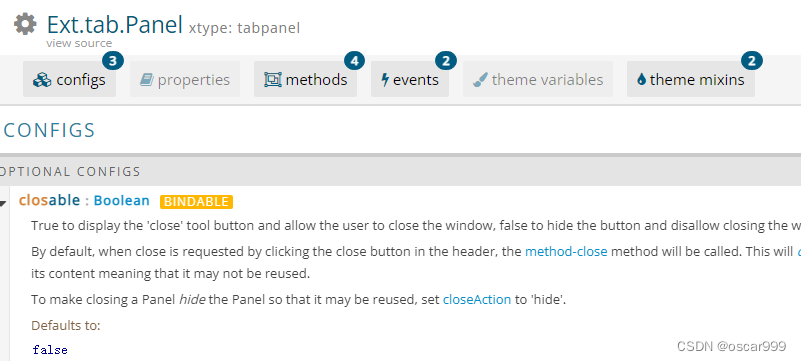
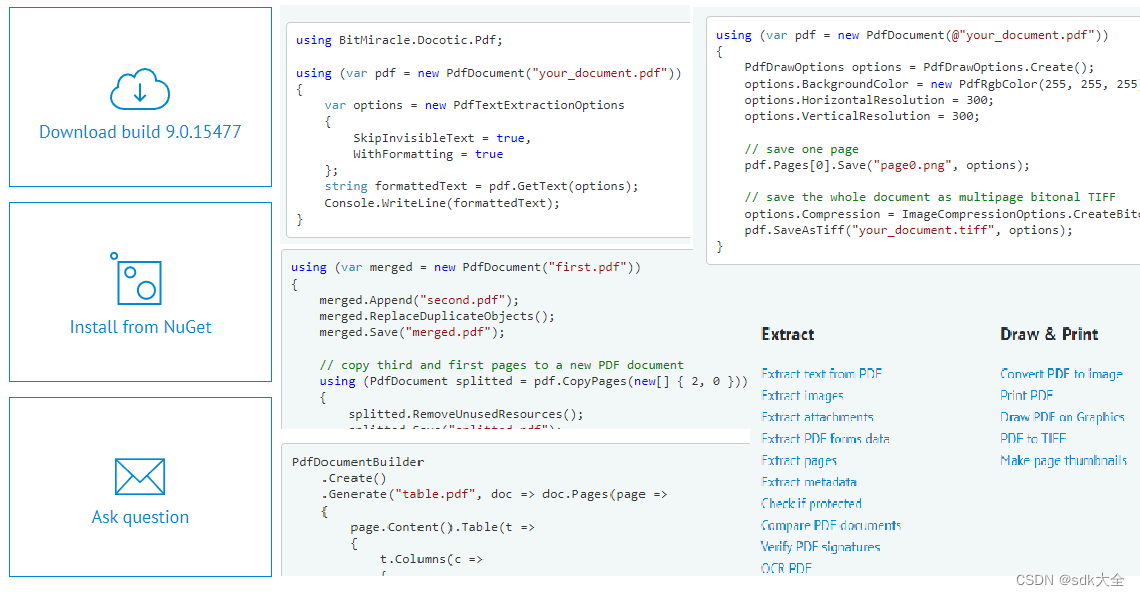
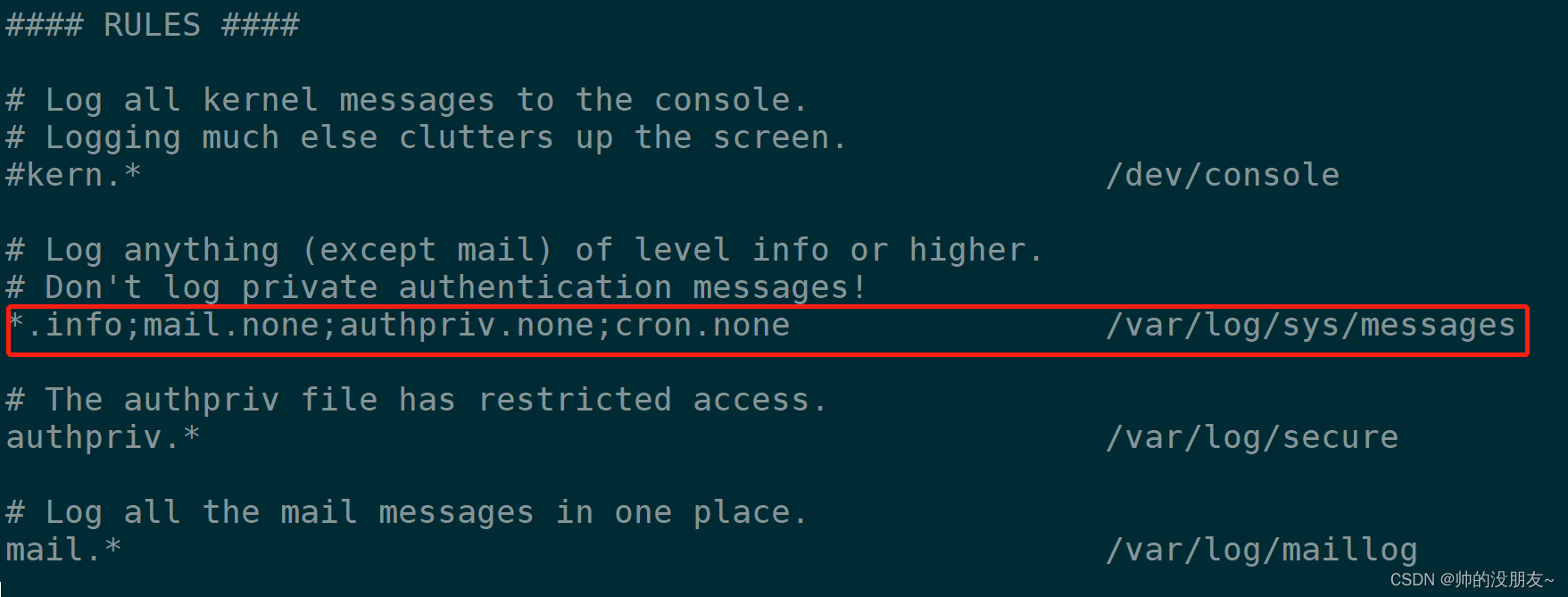

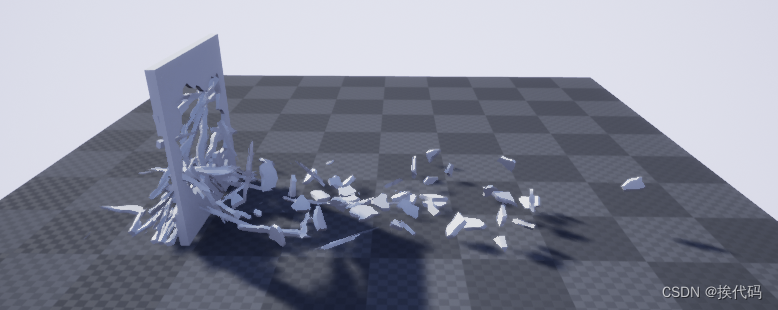

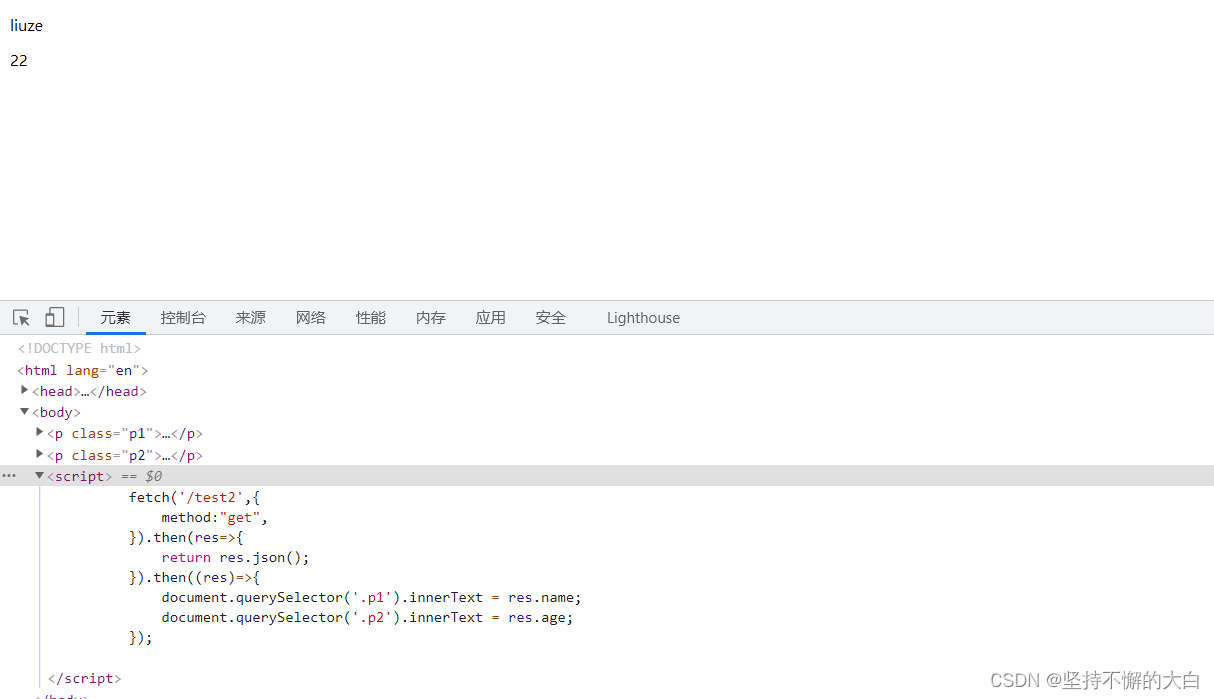
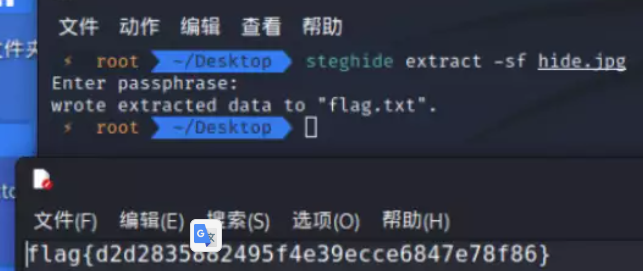
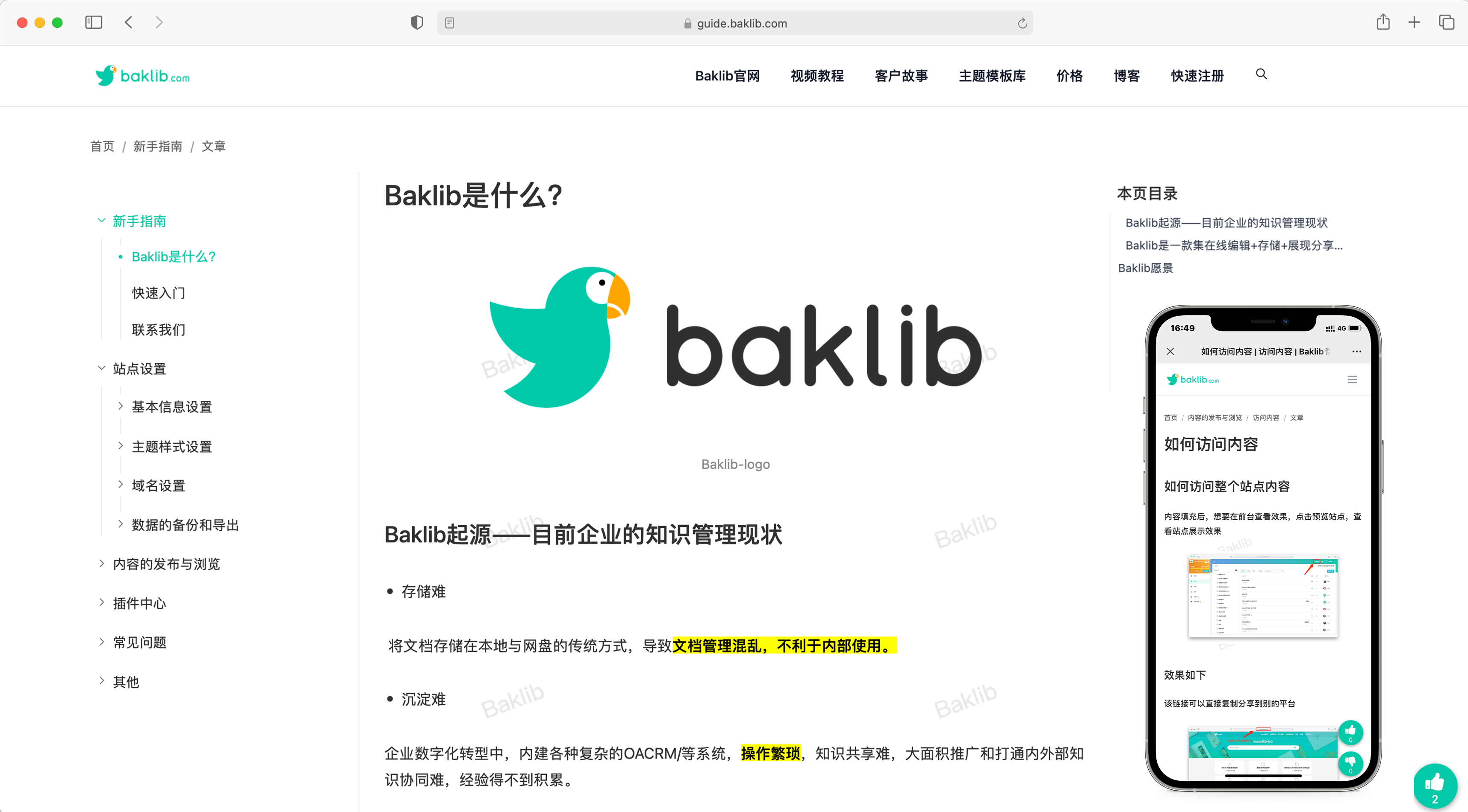
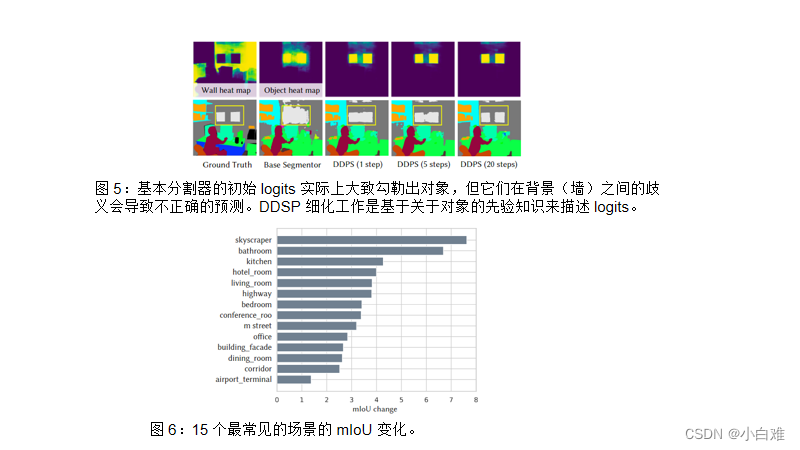
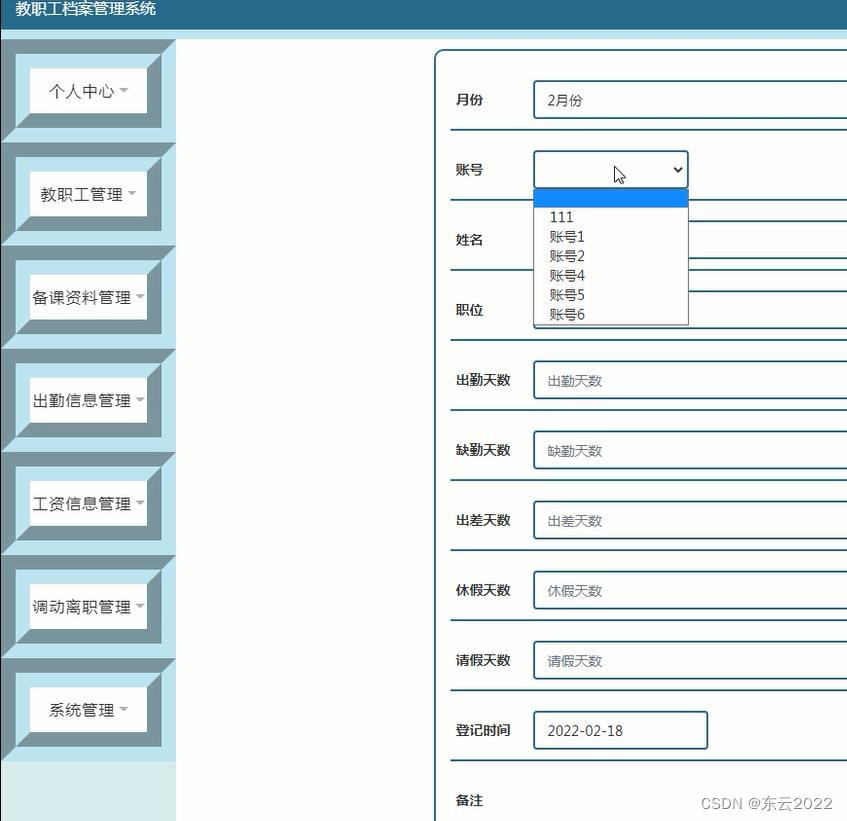
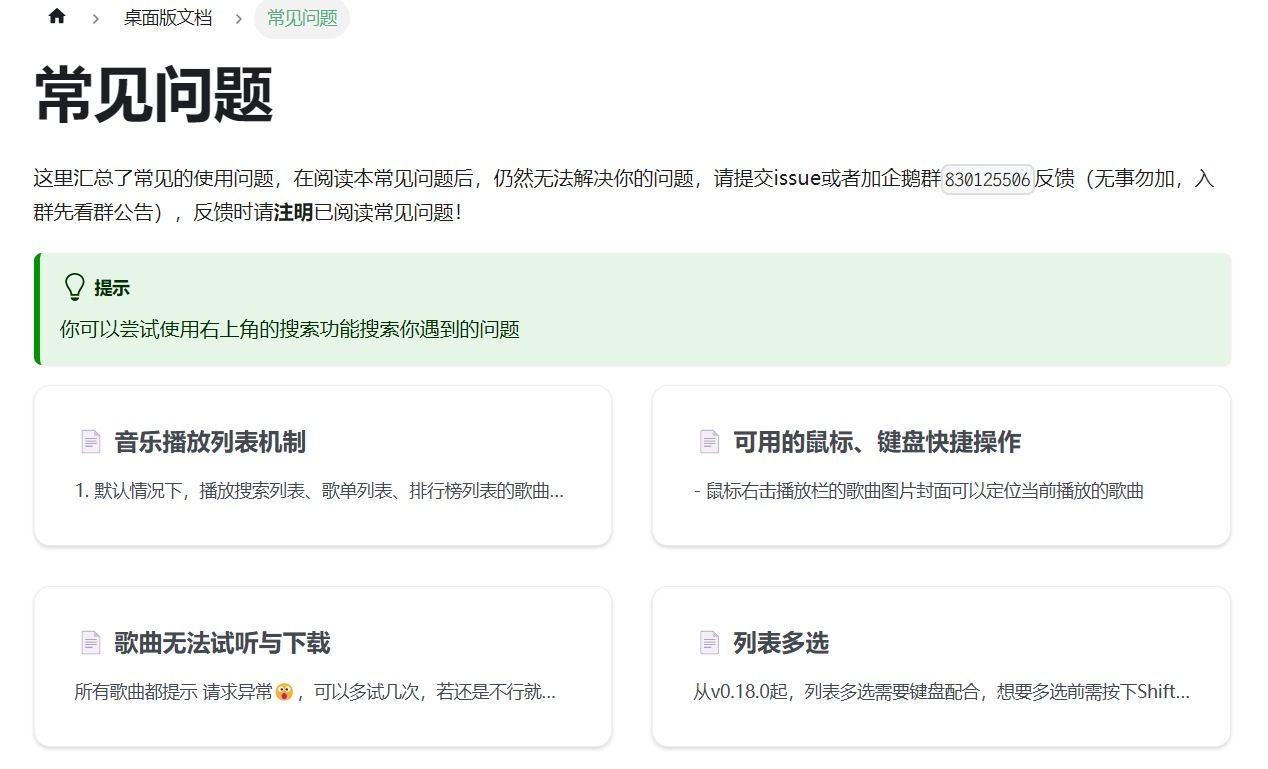


![[第一章 web入门]常见的搜集](https://img-blog.csdnimg.cn/img_convert/10bac75175e24d5892be22943af4dbc8.png)


